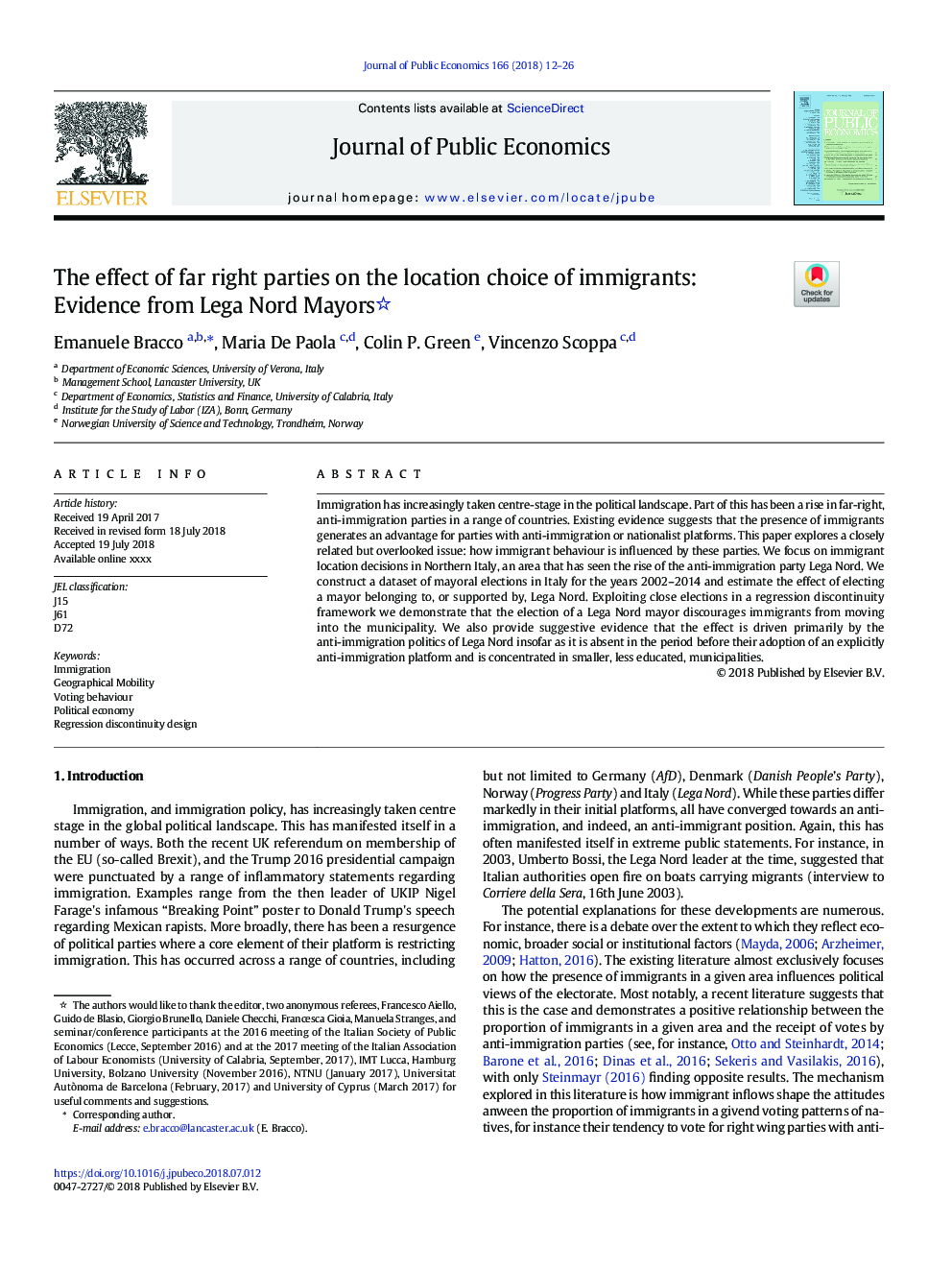| Article ID | Journal | Published Year | Pages | File Type |
|---|---|---|---|---|
| 8942366 | Journal of Public Economics | 2018 | 15 Pages |
Abstract
Immigration has increasingly taken centre-stage in the political landscape. Part of this has been a rise in far-right, anti-immigration parties in a range of countries. Existing evidence suggests that the presence of immigrants generates an advantage for parties with anti-immigration or nationalist platforms. This paper explores a closely related but overlooked issue: how immigrant behaviour is influenced by these parties. We focus on immigrant location decisions in Northern Italy, an area that has seen the rise of the anti-immigration party Lega Nord. We construct a dataset of mayoral elections in Italy for the years 2002-2014 and estimate the effect of electing a mayor belonging to, or supported by, Lega Nord. Exploiting close elections in a regression discontinuity framework we demonstrate that the election of a Lega Nord mayor discourages immigrants from moving into the municipality. We also provide suggestive evidence that the effect is driven primarily by the anti-immigration politics of Lega Nord insofar as it is absent in the period before their adoption of an explicitly anti-immigration platform and is concentrated in smaller, less educated, municipalities.
Keywords
Related Topics
Social Sciences and Humanities
Economics, Econometrics and Finance
Economics and Econometrics
Authors
Emanuele Bracco, Maria De Paola, Colin P. Green, Vincenzo Scoppa,
